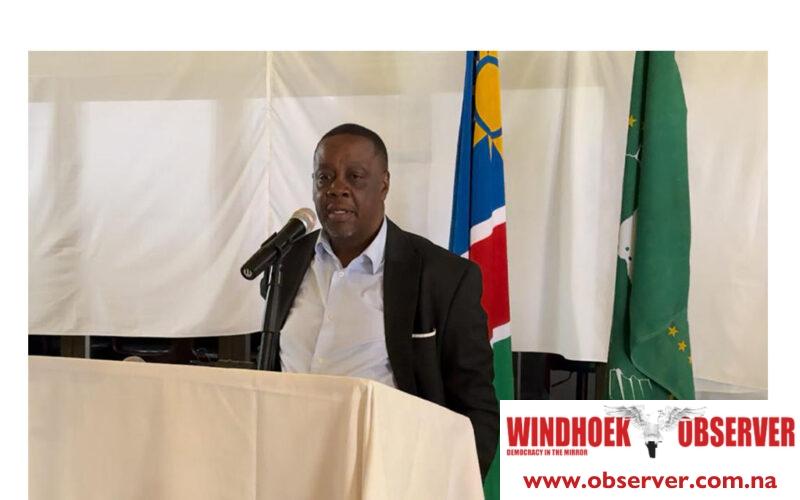Martin Endjala
The Governor of the Omaheke region, Pijoo Nganate has urged community members to put aside their emotions and personal opinions regarding the Stampriet aquifer transboundary system.
This call came during a high-level meeting held in Mariental on Monday on the possible impact of uranium mining in the Stampriet transboundary aquifer system.
Th e meeting took place amid growing concerns from residents in Leonardville and Stampriet.
“This issue involves destitute and vulnerable people. When the issue of mining came to our ears, we were all very excited. We said maybe this was the end of our miserable lives. But then we realised that it was not so simple because life could be lost,” he said.
Nganate said that people should stop promoting opinions and make sure that they have facts when participating in discussions.
He also called for people to put aside their emotions and produce facts that can help save lives and future generations.
He stated that one meeting cannot make crucial decisions that will affect people’s lives.
Nganate argued that what is the point of preserving water for future generations while inhabitants are struggling to access water?
He said a balance must be struck in this regard and not just save the planet if the inhabitants are not saved.
The Stampriet Aquifer Uranium Mining Association (SAUMA) has expressed opposition to in situ leach mining in the area.
This follows the discovery of uranium deposits in the main aquifer, the Auob Formation.
They have expressed concerns that allowing uranium activities to continue will contaminate the underground water.
Calle Schlettwein, the minister of agriculture, water, and land reform, emphasised that even if a mining company receives an exploration license and environmental clearance, the Water Act provision still takes precedence and requires full compliance.
“We need to clarify further that in all cases where the utilisation or any impact on a water resource is imminent, the provisions of the Water Act (Act No. 11 of 2013) are to be complied with, and that is over and above provisions of any other statute such as the Mining Act or Environmental Protection Act,” he said.
Of particular concern are the invasive exploration activities, which the minister said often require drilling into the subsurface to understand the geology and mineralization better.
These drilling activities, he said, frequently intersect water-bearing structures or aquifers used for water supply.
He said this is the only water resource available to users in the area.
He cautioned that these activities could damage the aquifer system if not carried out as directed and in accordance with the relevant drilling license conditions.
“If it is found that license conditions are not adhered to, the Ministry has the authority to take the necessary steps to enforce these conditions.
He explained that these pollution risks can be extremely challenging to manage and may lead to disastrous environmental consequences, which will cost remediation efforts later and potentially destroy the economic basis of the entire basin.
“As a ministry, we must take precautionary measures until we can determine the extent of the risk,” he stated.
He said that Namibia relies heavily on the Stampriet aquifer for irrigating food crops and producing livestock fodder.
He added that the groundwater system also extends across national borders into neighbouring Botswana and South Africa.
This shared resource could potentially lead to competing and conflicting uses.
He said the ministry is aware of the risks posed by uranium in situ leach mining, especially if borehole drilling is not conducted according to the prescribed license conditions.
He pointed out that in the Stampriet aquifer case, the environmental impact assessment carried out did not consider the risks of pollution and all its ripple effects downstream.
He contends that scientific evidence is necessary to guarantee the absence of risks.
Salomon April, the governor of the Hardap region, expressed his concern about the community’s struggle and suffering due to unemployment.
April is calling for a speedy implementation of the proposed mining.
Lamenting that people are struggling to make ends meet and that the proposed mine is meant to create jobs.
While also cautioning that a decision cannot be one-sided, hence the expertise offered by the United Nations Educational, Scientific, Cultural Organisation (UNESCO).




